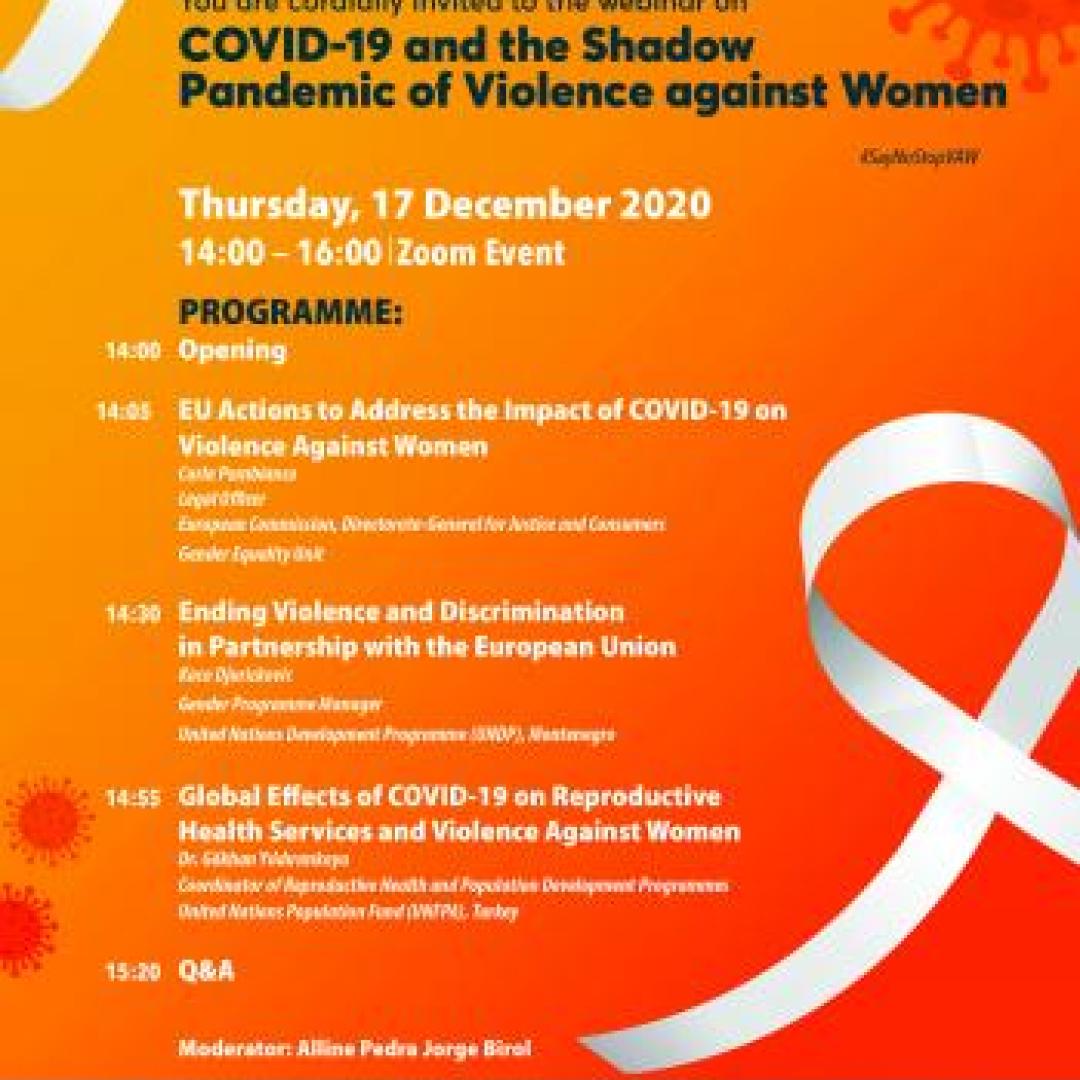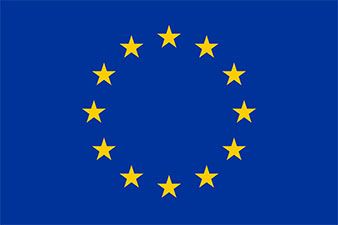The impact of COVID-19 on Violence Against Women discussed

Violence against women and girls is one of the most prevalent human rights violations in the world. It knows no social, economic or national boundaries. Worldwide, an estimated one in three women experiences physical or sexual abuse in her lifetime. Violence against women and girls has no place in the European Union, or anywhere else in the world. However, since the outbreak of COVID-19, emerging data and reports have shown that all types of violence against women and girls, particularly domestic violence, has intensified. To draw attention to this problem a webinar entitled “COVID-19 and the Shadow Pandemic of Violence against Women” was held on Thursday, 17 December 2020 on Zoom to highlight EU actions and partnerships to combat violence against women.
“We all need to fight collectively and persistently to end all forms of violence against women. In order to do so, a deep shift in our societies’ mentality is required. We must educate our boys and men to think about the opposite sex from a perspective of equality and respect,” said Michael Docherty, EUPSO Head of Section in his opening speech.
During the webinar, Carla Pambianco, Legal Officer in the Gender Equality Unit of DG Justice from the European Commission, talked about EU actions to address the impact of COVID-19 on violence against women. She noted that COVID-19 has a gendered impact, thus gender-sensitive response measures are necessary during the pandemic and the recovery phase. It is more important than ever to ensure that gender equality is at the centre of EU’s work she explained. She also touched on the newly announced Gender Equality Strategy which frames the European Commission’s work on gender equality and sets out the policy objectives and key actions for the 2020-2025 period.
Kaca Djurickovic, Gender Programme Manager from UNDP Montenegro, presented UNDP’s joint efforts with EU to end violence and discrimination. She presented an EU-funded project to combat violence against women which included the development of a mobile phone application to report acts of violence. Dr. Gökhan Yıldırımkaya, the Coordinator of Reproductive Health and Population Development Programmes of UNFPA presented the latest report on the global effects of COVID-19 on reproductive health services and violence against women. He explained that the pandemic has exacerbated existing inequalities and apart from increased violence during lockdowns, the pandemic has also added stress, anxiety and economic insecurity for many women around the world.
Violence against women affects the victims’ health and well-being, and it restricts their possibility to thrive in society, in education and employment. Combatting violence against women is a priority for the European Commission. Together with Member States the Commission co-leads the UN’s Action Coalition on countering gender-based violence under the Generation Equality Forum. In partnership with the United Nations, the EU launched the Spotlight Initiative in 2017, the largest global programme to eliminate violence against women and girls under the 2030 Agenda for Sustainable Development with a €500 million contribution.
The recent lockdowns due to COVID 19 have seen significant increases in reported acts of violence against women who were unable to distance themselves from aggressive partners or family members. The EU is currently funding two grant projects under the EU Aid Programme for the Turkish Cypriot community with a total budget of 1 million Euro to address issues relating to domestic violence against women: “Together We Are Stronger” project implemented by KAYAD and “United Against Violence” project, implemented by LTB. These projects have adapted their work to support women during COVID-19 by providing for example, online legal assistance or phone support during the lockdown.

